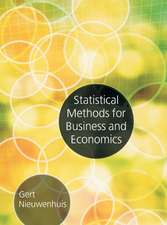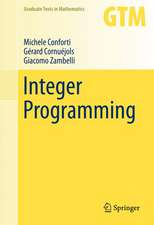Strategic Risk: A State-Defined Approach
Autor James M. Collins, Timothy W. Rueflien Limba Engleză Paperback – 26 sep 2011
| Toate formatele și edițiile | Preț | Express |
|---|---|---|
| Paperback (1) | 941.82 lei 43-57 zile | |
| Springer Us – 26 sep 2011 | 941.82 lei 43-57 zile | |
| Hardback (1) | 947.85 lei 43-57 zile | |
| Springer Us – 29 noi 1995 | 947.85 lei 43-57 zile |
Preț: 941.82 lei
Preț vechi: 1148.56 lei
-18% Nou
Puncte Express: 1413
Preț estimativ în valută:
180.21€ • 188.67$ • 149.12£
180.21€ • 188.67$ • 149.12£
Carte tipărită la comandă
Livrare economică 07-21 aprilie
Preluare comenzi: 021 569.72.76
Specificații
ISBN-13: 9781461285625
ISBN-10: 1461285623
Pagini: 240
Ilustrații: XVI, 218 p.
Dimensiuni: 155 x 235 x 13 mm
Greutate: 0.34 kg
Ediția:Softcover reprint of the original 1st ed. 1996
Editura: Springer Us
Colecția Springer
Locul publicării:New York, NY, United States
ISBN-10: 1461285623
Pagini: 240
Ilustrații: XVI, 218 p.
Dimensiuni: 155 x 235 x 13 mm
Greutate: 0.34 kg
Ediția:Softcover reprint of the original 1st ed. 1996
Editura: Springer Us
Colecția Springer
Locul publicării:New York, NY, United States
Public țintă
ResearchDescriere
Strategic Risk examines a fundamental issue in the field of strategic management and organizations: how to study changes in the competitive outcomes of firms. Collins and Ruefli develop the concept of ordinal risk and extend this concept and its associated measures to the more general framework of state-defined systems. The book makes the state-defined risk methodology more accessible to strategic management researchers, and to social scientists in general. The need for quantitative frameworks with which to analyze the dynamics of strategic management has been apparent for some time. The state-defined risk methodology has the advantage of being based on a common usage definition of risk, and is also based on a mathematically well-behaved function. It permits investigation of the chance of gain while yielding a measure of environmental uncertainty. Finally, the development is general and permits applications employing a variety of performance dimensions over a range of entities in a diversity of contexts. The authors demonstrate the practicability and reliability of this approach by applying the model to mutual funds, large mining and manufacturing firms, and public firms on an industry by industry basis.
Cuprins
List of figures. List of tables. 1. Introduction. Appendix A. 2. Review and Analysis of Traditional Conceptualizations and Related Measures of Risk. 3. A Concept of State-Defined Risk. 4. A Measure of State-Defined Risk. 5. A Generalized Measure of State-Defined Uncertainty. Appendix B: Weight Systems. 6. Concepts and Measures of State-Defined Prospect and Hold. 7. Recapitulation. 8. Two Illustrative Examples. 9. Ex Post Risk and Return Relationships. 10. Asymmetries in State-Defined Risk and Prospect. 11. Implications, Contributions, Limitations, and Directions for Future Research. Bibliography. Index.
Recenzii
`The stated purpose of this book is to provide a new approach to assessing risk. The book accomplishes this purpose, and more...To me this book is one of the more useful ones which I have read in a long time. I think the authors have hit upon something very useful.'
C. Leake, University of Maryland for the Journal of the Operational Research Society
C. Leake, University of Maryland for the Journal of the Operational Research Society











